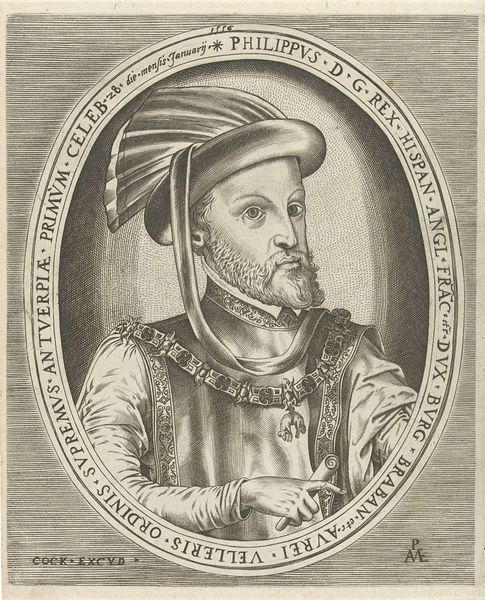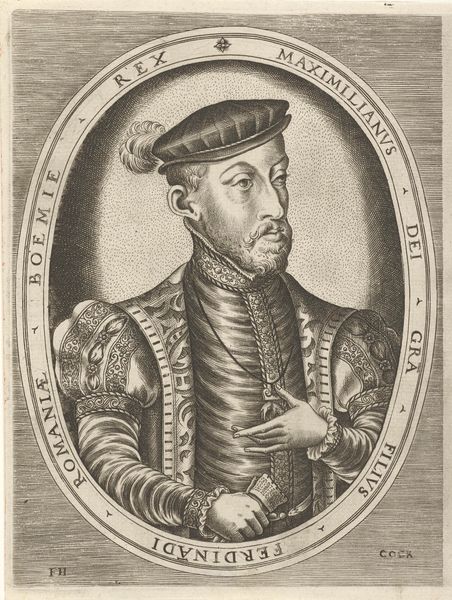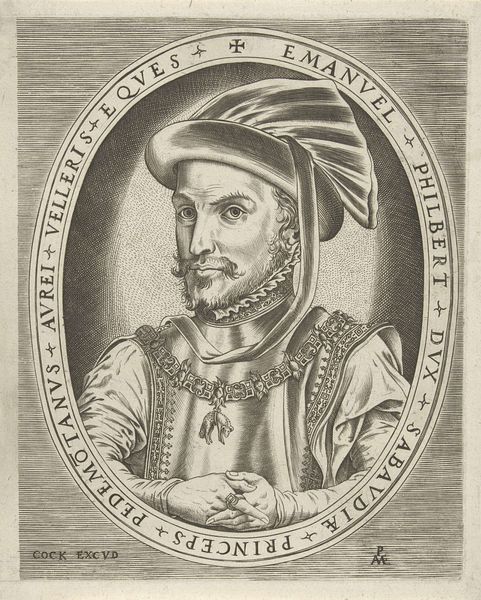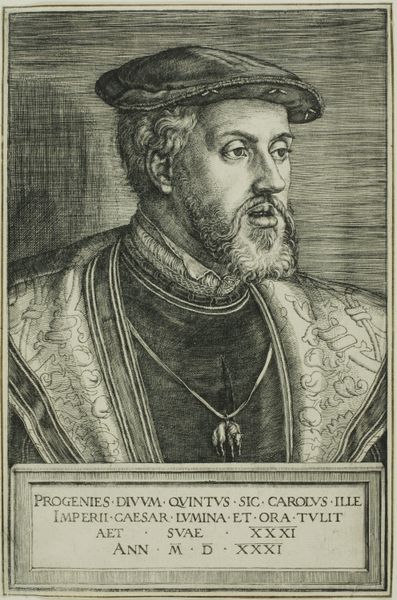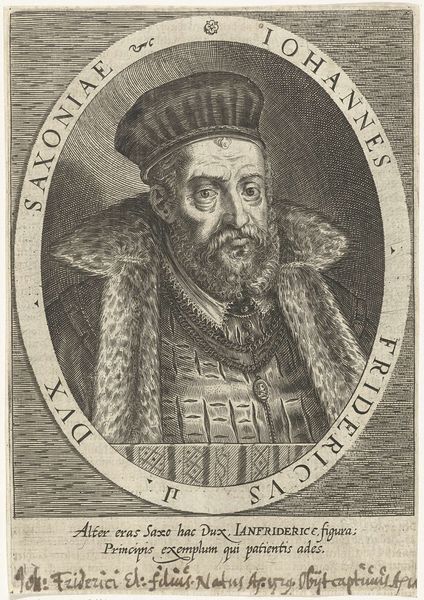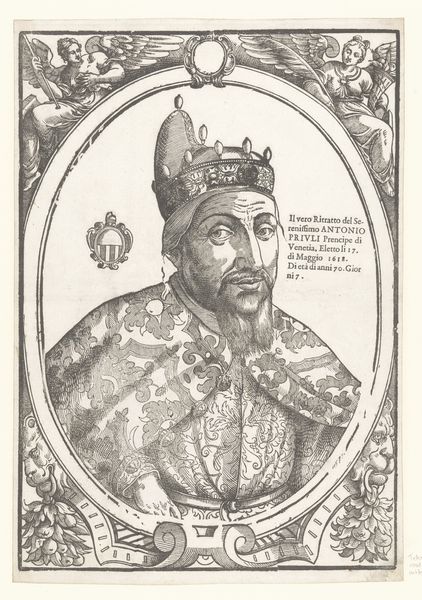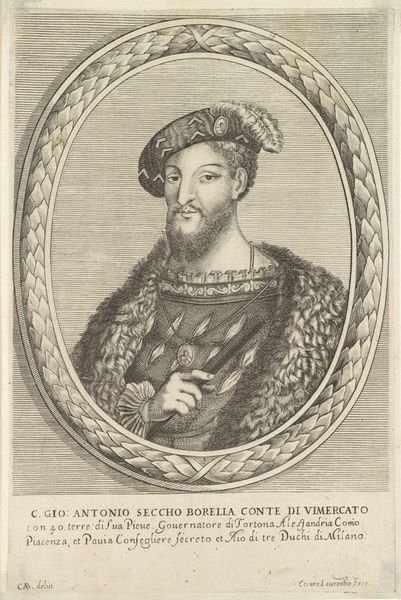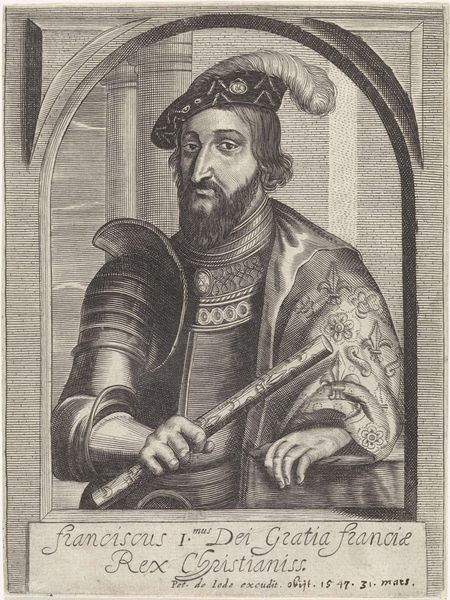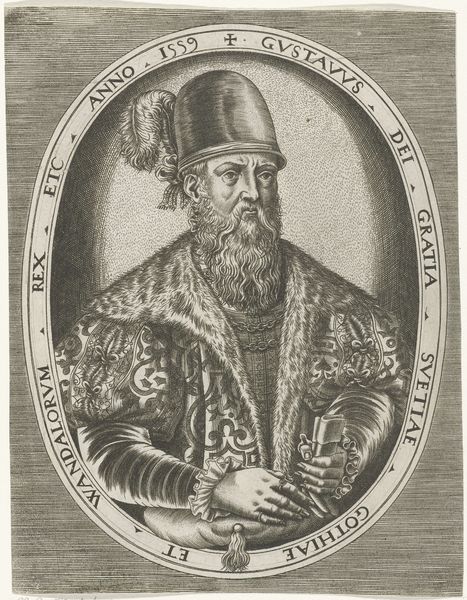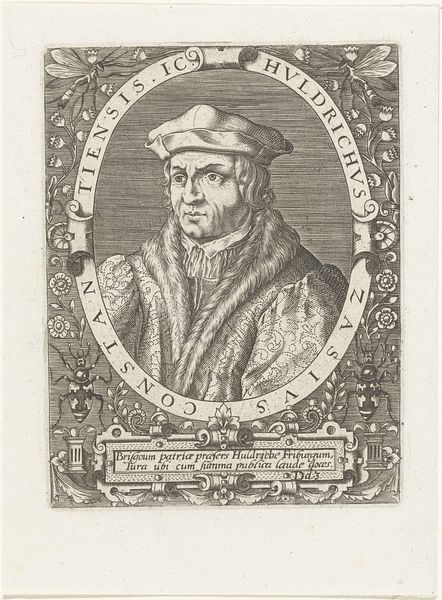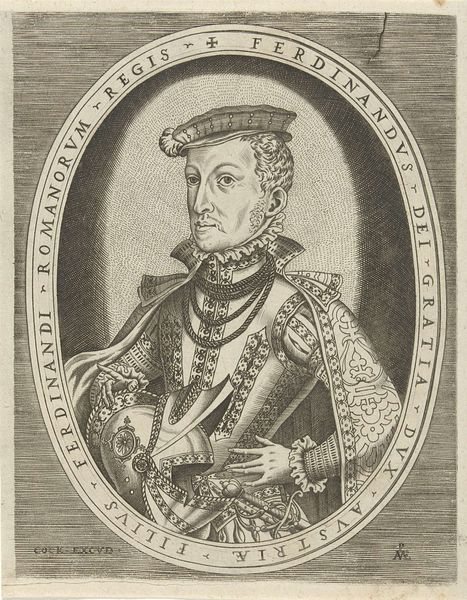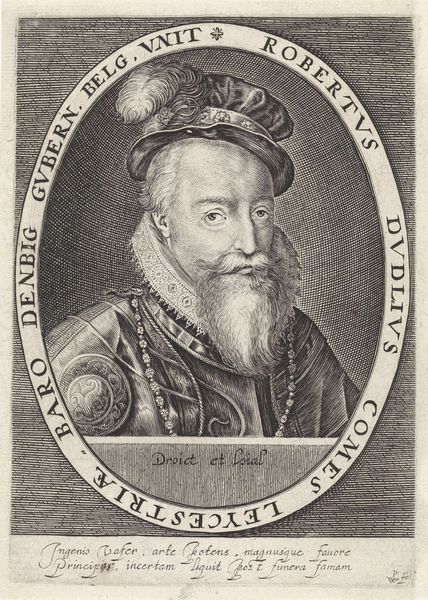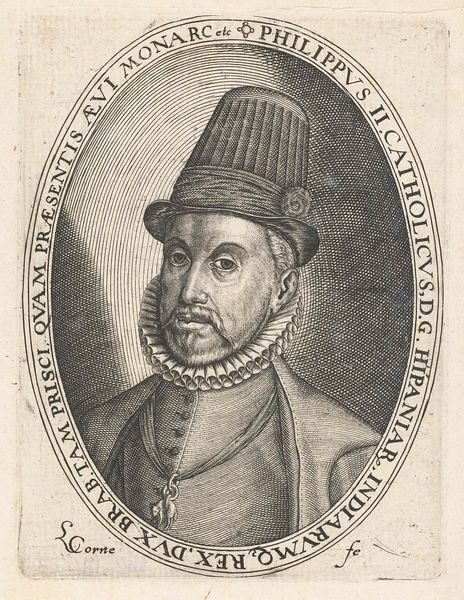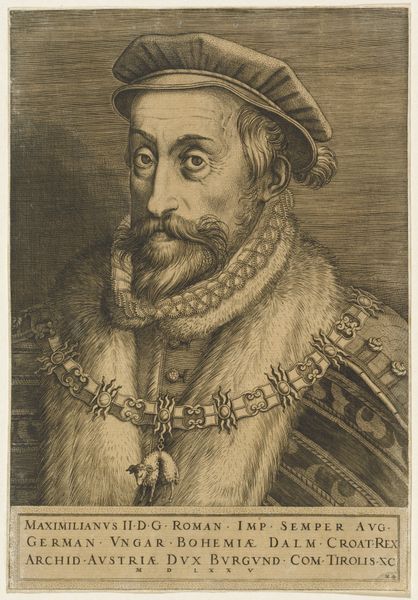
Portret van Ferdinand I van Habsburg, Duits keizer c. 1540 - 1564
0:00
0:00
pietervanderheyden
Rijksmuseum
print, engraving
#
portrait
# print
#
old engraving style
#
mannerism
#
pen work
#
history-painting
#
northern-renaissance
#
engraving
Dimensions: height 208 mm, width 160 mm
Copyright: Rijks Museum: Open Domain
Pieter van der Heyden created this engraving titled 'Portret van Ferdinand I van Habsburg, Duits keizer' sometime between 1525 and 1569. This portrait reflects the rigid social hierarchies of 16th-century Europe. Consider how the representation of Ferdinand I, Holy Roman Emperor, is carefully constructed. Every aspect, from his regal attire to his composed expression, is designed to project power and legitimacy. Note the intricate details of his clothing and jewelry which emphasize his wealth, status, and divine right to rule. How might the average person have felt looking upon this image? For many, this portrait would have reinforced the idea of an unapproachable, almost godlike ruler, furthering the divide between the monarchy and the populace. Van der Heyden's engraving not only immortalizes Ferdinand I, but also perpetuates the socio-political structures of his time. It serves as a reminder of the power dynamics inherent in portraiture and the ways in which images can shape perceptions of authority.
Comments
No comments
Be the first to comment and join the conversation on the ultimate creative platform.
